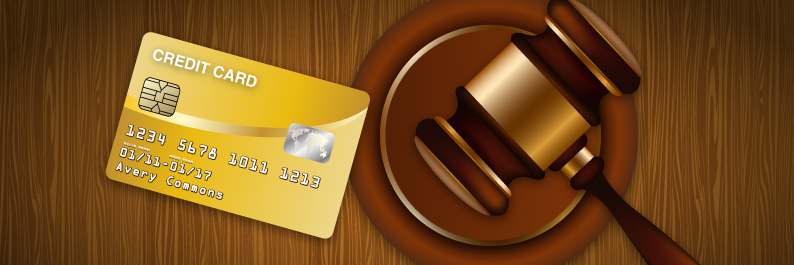Free money from your credit card company will never be a bad thing, as long as you keep your payment – are you? In most cases, no. As long as you pay your bills in full and on time, it's usually a good thing to earn more. However, if you pay an annual fee on the card, your reward income may not be as valuable as it seems.

You need to keep your credit report as tidy and clean as your home's garage. If you want to have a stable financial future, you must have a good credit history. Your credit score is determined by the information and history in your credit report. You will want to have a high credit score because they will make it easier for you to get approved for a loan. The better the score, the more money you can borrow. Credit reports will even affect your ability to get insurance and other financial products. At MyFreeScoreNow, you can retrieve your free credit report and score.
You should regularly check your credit report. Don't wait until you're buying a car or house to find out what your credit report states. There may be some problems or issues on the report which you need to resolve. This will be a problem if you're trying to get fast approval for a loan. To ensure that your credit report is clean, here are 7 steps that you can take.
1) Check your Credit Report Regularly
Under federal law, every U.S. citizen has the right to receive 1 free copy of their credit report on an annual basis. You can even receive 1 report from each of the 3 biggest credit reporting agencies in the country: TransUnion, Equifax, and Experian. Each of these credit bureaus will generate a different version. That is why you can receive a free copy from each of them. A website like AnnualCreditReport.com will give you access to them. It is a good idea to request a report from just one credit bureau at a time. Then you can request copies from other bureaus throughout the year. Spreading out the report requests will give you the biggest insight into your credit profile status without having to pay anything. But if you've never checked your credit report before, you might want to request all 3 reports at the same time just once. If you fail to secure a line of credit or a job, or if you get approved for a loan with a high-interest rate, you can legally access your credit report for free so that you can review it. When the bank or employer sends you a letter with their decision on it, the letter should contain a phone number to call.2) Look Over Your Identification Information
When you look at your credit report, it is crucial to verify your important information. This includes your name, social security number, and address. Don't focus too closely on the little changes in your credit score like most people do. Just make sure your credit report is accurate.For instance, if your social security number is incorrect in your report, you need to fix it right away or else it could cause a lot of problems for you. Once you have verified the information is correct, review the accounts information and make sure you recognize all of them. Sometimes your lenders might be using an alternative name, so be sure you know this name.

3) See If Discrepancies Exist in Your Report
See if there are accounts listed on your report that are unfamiliar to you. If you find an account with negative information listed for it, verify that it is really your account. Sometimes the account information of another person could mistakenly get published on your report.A huge red flag is if you have an unusually high balance on an account. This usually means someone has stolen your identity. It could also be a case of mistaken identity.
It takes 7 years for negative information to finally leave your credit report. If you've had a Chapter 7 bankruptcy before, it takes 10 years for the information to be removed. However, there are times when this negative information stays on your credit report for longer than it's supposed to. This could be an error which you need to get straightened out.
4) Beware of Phantom Money
If your credit history features a lot of collections issues, it may have larger outstanding balances listed than it's supposed to have. This is due to the secondary market which is associated with collections.For instance, let's say you miss payments on your credit card account and it falls into delinquent status, the credit card provider will attempt to collect the payments you owe them for a short while. Eventually, they will stop trying to collect the payment from you. Instead, they will sell your credit card account to some third-party collection agency.
The balance on your credit card will become $0. However, a new credit card account will show up in your report under the name of the collection agency. In some cases, the original credit card balance will stay the same and not go to $0. As a result, your credit report will show two credit card debts for about the same amount each.
Your delinquent account may be resold several times if you continue to not make payments. Once this happens, your report may show a new account balance for each time the original was sold.
In another example of phantom money, you close a bank account which has a line of credit for overdraft protection attached to it. If you close that account, the line of credit may still show up on your credit report.
5) If You Locate a Mistake, Dispute It Immediately
When you order a credit report from one credit bureau and it has a big mistake on it, order reports from the other two bureaus to see if they have the same mistake listed too. If the mistake is on all three reports, then it is an issue with the lender. If it is on just one report, then that bureau might be too blame and you should contact them.If your credit report has another person's information on it or if unfamiliar accounts are published on it, call that credit bureau immediately. There are online dispute forms available for each of the three credit bureaus. This will be the fastest way to file a dispute and resolve discrepancies.
It is better to contact the bureau rather than the creditor when filing a dispute. Each creditor will act differently, and you don't know what to expect. Bureaus are better because they use the same process for handling all disputes.
If you have negative information on your credit report which is over 7 years old, call your lender immediately. The same goes for outstanding balances listed on the report which you previously paid off.

6) Keep Documentation and Follow Up
Your work doesn't end after a dispute is filed. You need to follow up too. If there is an old inaccurate item listed on your report, it is possible that your previous creditor went out of business or was purchased by another company. That is why you need to keep documents on everything from beginning to end.When you talk to lenders or anyone at the credit bureaus, write down notes about the conversation. List the name of the person, the date you talked to them, and the date that the mistake on your report was supposedly corrected.
Each of the 3 credit bureaus sends electronic messages to one another. If one report had corrective actions made on it, the other reports should show these actions too.
7) Understand What Not to Worry About
There are things listed on your credit report which might scare you. However, they are nothing to worry about. These might include:- Closed accounts. If you successfully completed your financial obligations on an account, it will be closed. That is a good thing.
- Credit Inquiries. When you apply for a credit card or loan, your credit report will have a hard inquiry listed on it. This can also happen if you sign up for a cell phone plan, cable television plan, or another type of service contract.
Your credit score is not too impacted by a hard inquiry. It will last anywhere from 6 months to 2 years, which is not much time at all.

